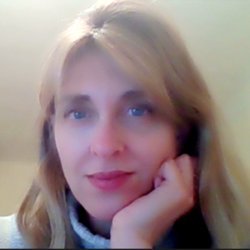SCENARIO: space-based quantification of soil organic carbon: enabling carbon credits and regenerative agriculture
The implementation of regenerative practices by farmers is expected to represent up to 30% of the global carbon offsets in the coming decades. An emerging huge carbon credit market aims to reward farmers for adopting soil regenerative practices. However, this market is hindered by the lack of inexpensive ways to monitor and verify carbon amounts in soils. Currently, the carbon certification industry is reliant on transporting soil samples to labs for testing. This is costly enough to negate the economic benefits farmers are meant to enjoy for implementing regenerative practices.
Start date
1 October 2022Duration
3 yearsApplication deadline
Funding source
Scenario NERC Doctoral Training PartnershipFunding information
This research project is one of a number of projects at this institution. It is in competition for funding with one or more of these projects. Usually the project which receives the best applicant will be awarded the funding.
This project is potentially funded by the Scenario NERC Doctoral Training Partnership, subject to a competition to identify the strongest applicants. The project has CASE funding from Mantle Labs. Due to UKRI rules, the DTP can only fund a very limited number of international students. We will only consider applications from international students with an outstanding academic background placing them in the top 10% of their cohort.
This studentship covers both fees and stipend – a tax-free maintenance grant which was £15,609 per year in 2021-22. You will also receive a Research Training and Support budget to cover costs such as conferences, workshops and equipment.
About
This research will address the direct quantification of soil organic carbon from the soil’s hyperspectral signature anticipating the arrival of the next generation of hyperspectral satellites (e.g. Chime, EnMap). The developed knowledge will contribute to overcome a major obstacle for the implementation of regenerating practices, which is the lack of cost-effective, robust and scalable tools to quantify soil organic carbon (SOC) for carbon offsetting. While spectroradiometer-based methods for quantifying SOC under controlled laboratory conditions are well established, this research will focus on their transfer and application to real field conditions. For this purpose, the research questions will focus on the determination of soil spectral features minimally affected by variable environmental conditions such as soil moisture, surface roughness or crop residues and on modelling the relationship of these features to SOC. The model will then be adapted to the available spectral bands in existing and future missions, and their performance tested.
The research will build on early work demonstrating that the so-called ‘soil-line’ in the feature space of any two spectral bands is largely unaffected by changes in soil moisture and surface roughness, as well as by illumination conditions and observation geometry. Hence, soil-line coefficients are soil-inherent (perturbation-agnostic) optical features. The novel approach of this research will consist of exploiting the robustness of the soil-lines as soil descriptors for retrieving the SOC content.
To relate the soil-inherent soil line coefficients to SOC, the research will use machine learning/AI. Training of these models will involve datasets of SOC and concomitant spectral signatures and measurements of soil moisture and surface roughness. The University of Surrey, UK Centre for Ecology and Hydrology (UKCEH), British Geological Survey (BGS) and ML have collected an extensive database of soil conditions and surface SOC content for the AI training. Study sites, field measurement equipment (moisture probes, spectroradiometers), laboratory facilities and trained technicians are available if more field data were needed.
Training opportunities
The University of Surrey, UKCEH and BGS offer scientific and professional training courses that will be available to the student. This includes the new UKCEH training package for early-stage researchers in soil carbon and moisture detection and analysis, as part of the national digital twinning agenda.
ML will offer a placement no shorter than 3 months for the student to learn and adapt their pipeline of EO and artificial intelligence processes to the research. There will be options for the student to visit the Institut of Geomatics, BOKU, Vienna and the European Union JRC soil team at Ispra, Italy. If unable to attend physically, the student will have the option of virtual visits.
The student will be able to participate in field measurement campaigns and laboratory tests, if interested.
Duration
All Scenario studentships are initially offered for 3 years. If at the start of the studentship a gap in knowledge or training is identified for the specific project, the studentship can be extended to 3.5 years at that point. Towards the end of the PhD, there is the opportunity to apply for an extension, based on set criteria. The maximum duration of funding is 4 years.
Eligibility criteria
Applicants should hold or expect to gain a minimum of one of the following:
- 2:1 bachelor degree
- Masters degree with merit
- Equivalent in maths, physics or engineering or alternatively from the Earth sciences.
The student is not required to develop completely new EO or artificial intelligence algorithms, but to understand them conceptually to ensure some adaptations and their rigorous application.
How to apply
Please follow the application instructions on the SCENARIO website.
Studentship FAQs
Read our studentship FAQs to find out more about applying and funding.
Application deadline
Contact details

Studentships at Surrey
We have a wide range of studentship opportunities available.
